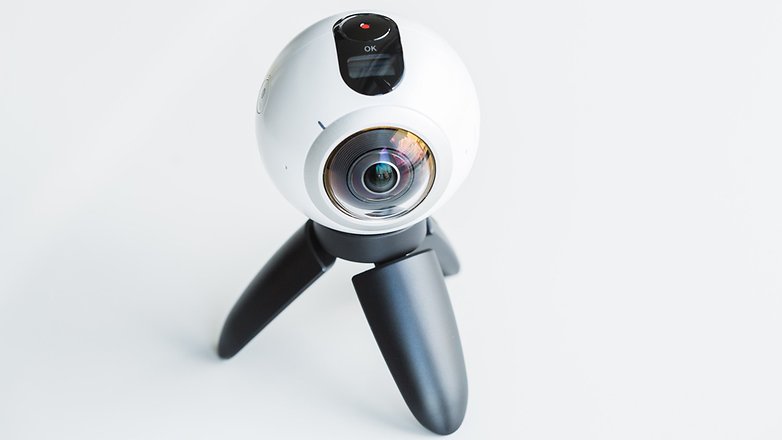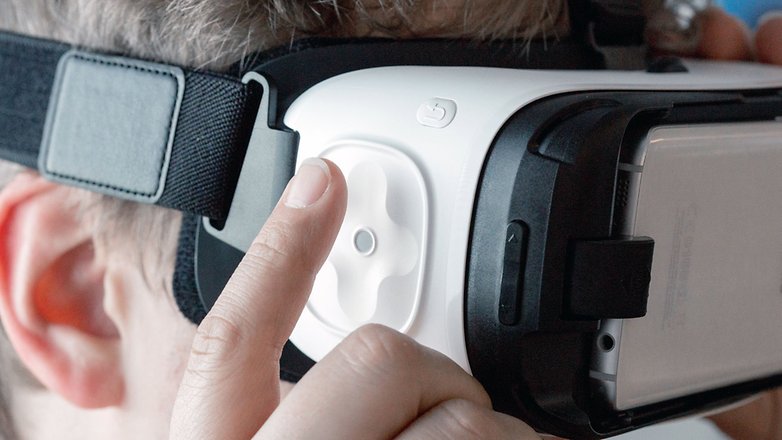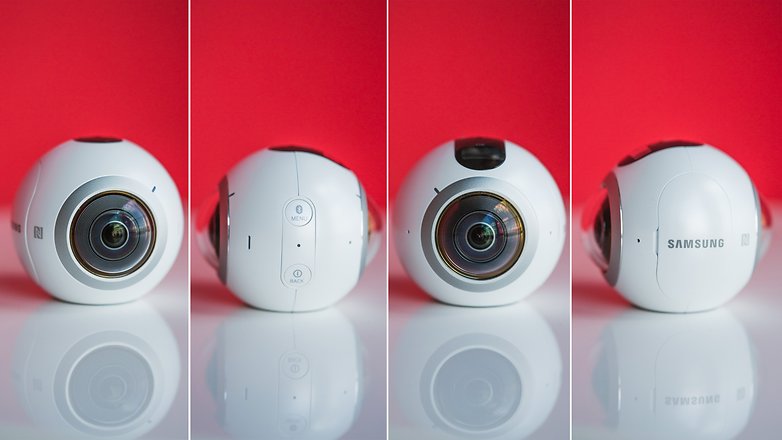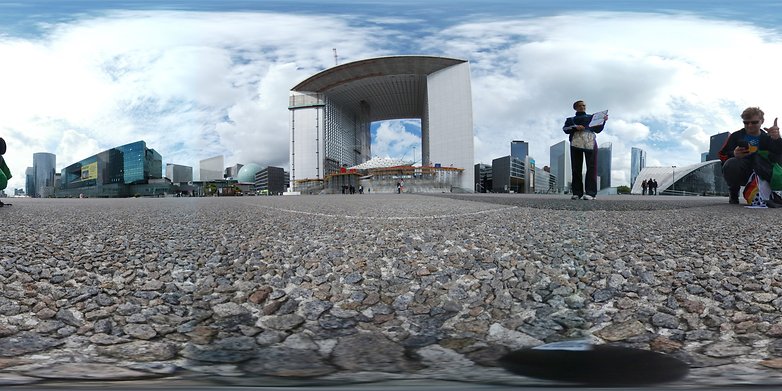Gear 360 camera
The Gear 360 snaps pictures with two lenses at a resolution of approximately 15 MP, with the originals having a strong fish-eye lens look. When running the camera with a cell phone, images are converted to an equirectangular format. These images have a resolution of 7,200 x 3,600 pixels.
The picture quality is very good, but there are some areas of the image that do not come off quite as good. This applies, for example, to a picture in which deciduous trees can be seen about 50m away: Their leaves are pretty washed out. Given the extremely small focal length of the lens, this is probably just the technical limit of the hardware.

Photos are only half the battle as the Gear 360 can also record videos. Here, the maximum resolution is 3,840 x 1,920 pixels, with the camera shooting 30 frames per second (fps). Whoever wants to take fast action video can set the mode at 60 fps, with resolution dropping to 2,560 x 1,280 pixels.
The image quality of videos is fine, but the fine detail is not so high. Fast movements of a ball, for example, aren’t so clearly visible with a typical 30 fps recording. The 60 fps mode is better but lower resolution leads to a poorer image.
There are hardly are errors during stitching of panoramic shots. However, the closer to the camera an object is, the more errors can be seen. At a distance of a few meters, hardly any stitching errors can be discerned.
Viewing 360-degree images
Special software needs to be used to view 360-degree images; either with the Gear 360 Manager, but also Facebook, Google Photos and even normal web pages with a Javascript plugin. Without VR goggles you can use a smartphone display to select segments.

If you want to view images only with Gear VR glasses you might run into problems. That’s simply because it’s not so ergonomic to display this kind of content the Gear VR. The Gear 360 Manager sometimes inexplicably stops displaying the Gear VR button, without which you can’t really make use of Samsung's VR headset.
The Oculus app starts automatically when the phone is inserted into the VR goggles. Now things get a bit crazy: Oculus Photo and Video apps can’t do anything with Gear 360 shots. The photo app does not even display self-made content that the video app could also play. But there’s really a different problem: it detects 360-degree video only if stated with the filename _360 - which the Gear 360 Manager does automatically.
So you have to change the filename manually. Feasible, but cumbersome and not very intuitive. But even then, the video app content doesn’t play, but rather shows only a still picture. Whether a _playback in filenames remedy would have worked here, I wasn’t able to try myself.
Alternatively, in the Oculus Store, there is at least a VR Gallery app from Samsung. This is not exactly convenient, but at least displays images and videos.

Even worse is if you would like to share images with others Gear VR owners. Facebook is the only convenient alternative if you do not want to transfer files via cloud storage. The route via Facebook has the decisive disadvantage that the images are re-compressed - meaning quality suffers significantly. In addition, you have to (more or less) publish the images.
Why not Google photos or YouTube then? Google Photos is actually the best way because you can simply use a link to access to the original images. But other Gear VR owners can not easily see the photo albums because the Photos app is only Cardboard supported. On YouTube, the same problem exists. This service only lets you (currently) use the Samsung Gear VR with a browser.

Atmosphere vs. image quality: 360-degree images and the Gear VR
Now, the Gear VR worked a treat as my photos were stored on my Galaxy S7. Regarding the VR glasses, images were impressive because the view is roughly life-size. The Gear 360 captures, in combination with VR glasses, the atmosphere of a place wonderfully. Also, video recordings are impressive, although not quite as detailed as photos. However, there are two things that are not ideal:
- The actual resolution of the captured images is quite high, but the Gear VR has only the Galaxy S7 as a display medium and its pixel density is not sufficient to display a highly detailed panorama.
- The focus of a 360-degree recording is not infinite. So there is a problem that only a specific image area is in focus - outside this range, depth of field suffers visibly.
A better VR platform could potentially deliver a better result in terms of image quality because the recordings of the Gear 360 have elements that simply don’t compute with the Gear VR combined with a Galaxy S7.
In our Google Photos album, you can check out some of the 360-degree photos we made:
No comments:
Post a Comment